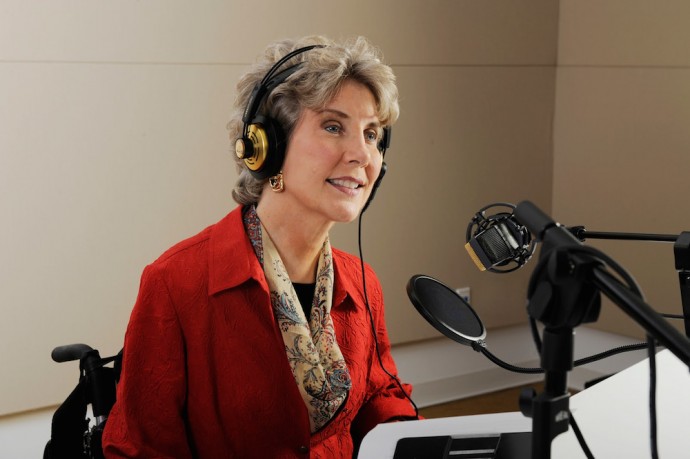Brittany Maynard was on the cover of People magazine this week under the banner, “My Decision to Die: A Terminal Cancer Patient’s Controversial Choice.”
Coverage of the 29-year-old’s intention to end her life by physician-assisted suicide has elicited a massive media response, much of which tends toward the “controversy” frame. Despite the publicity, her choice remains intensely personal, and she rejects the characterization that she is choosing death. “Cancer is ending my life,” she said. “I am choosing to end it a little sooner and in a lot less pain and suffering.”
In response, Religion News Service features an essay by disability advocate and evangelical radio personality Joni Eareckson Tada. Paralyzed in a diving accident in 1967, Tada is known for her advocacy group, “Joni and Friends,” her books, and her paintings, which she creates by holding a brush between her teeth. Like Maynard, Tada’s life story is marked by pathos, and millions of people have been touched by her struggle.
Her essay, on the other hand, is strikingly accusatory. Under the head, “Joni Eareckson Tada to Brittany Maynard: God Alone Chooses the Day You Die, Not You,” she writes:
I understand [Maynard] may be in great pain, and her treatment options are limited and have their own devastating side effects, but I believe Brittany is missing a critical factor in her formula for death: God. The journey Brittany — for that matter, all of us — will undertake on the other side of death is the most important venture on which we will ever embark. So it must not be disregarded or brushed aside without thinking twice about the God who alone has the right to decide when life should begin and end.
I have not seen anything to indicate that Maynard is devoutly Christian, or that a because-God-says-so argument would appeal to her. But consistent with the controversy frame, this view does represent a “side.”
Tada goes on:
Unfortunately, three countries and five states have now determined that individuals can make these choices for themselves. This is what happens when God is removed: The moral consensus that has guided that society begins to unravel. People in this country have bought into the premise that one really is better off dead than disabled.
Tada changes the subject from terminal illness to disability, ignoring the fact that Maynard is not disabled. She has cancer, and with it, the expectation that she will die a slow and painful death, and soon. That she has found a place humane enough to let her die in comfort and on her own terms is, for Tada, “unfortunate.” Instead, she suggests, Maynard should die as God intended – miserably.
For Tada, Death-with-Dignity laws demonstrate that the entire “moral consensus” of society is “unraveling.” To call this hyperbole is to understate the case. There is simply no reason to believe that mercy for the dying will facilitate moral decay in the society of the living. Such claims are trademarks of the generation of Christian Right-ism in which Tada was raised, but which has already expended most of its rhetorical force on similarly wild claims.
The essay continues in this vein. Tada writes that the choice to end one’s suffering “unravels the cords of compassion that have characterized our nation for so many decades.” It “alienates, separates and dismantles us as a people who truly care for one another.” And far from a private decision made by an adult cognizant of her own needs, Maynard’s decision has made her a tool of other interests. “Proponents of Brittany’s decision are already using her story as a bully pulpit to advance their so-called death-with-dignity agendas.”
It’s hard to read Tada’s piece without recoiling at the jaw-dropping insensitivity, but equally hard to read it without reference to the author’s own fortitude in the face of suffering. We are of course tempted to defer to her on questions of this nature. But such deference depends upon exactly the sort of basic human empathy that she has suspended in her treatment of Maynard.
The obsession with extending life indefinitely, through medications and procedures and without regard for quality, has already condemned too many to deaths that are painful because prolonged. If taking medicine to end one’s life is a violation of God’s rights, then taking medicine to extend one’s life must be an equal-and-opposite violation. Those opposed to physician-assisted suicide, like Tada, often insist that they speak for the Lord and for morality. They certainly do not speak for mercy. I just hope and pray that they are not influencing public policy if and when I am faced with this decision.


